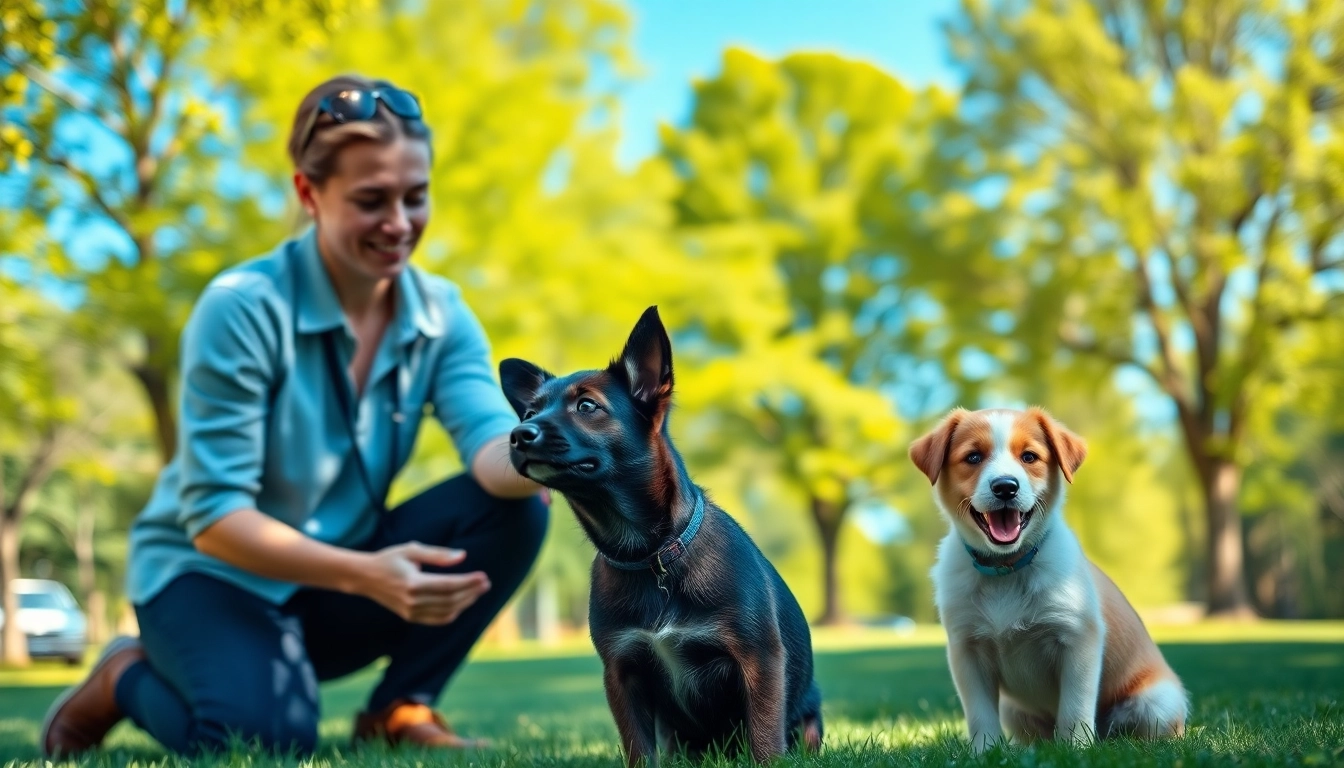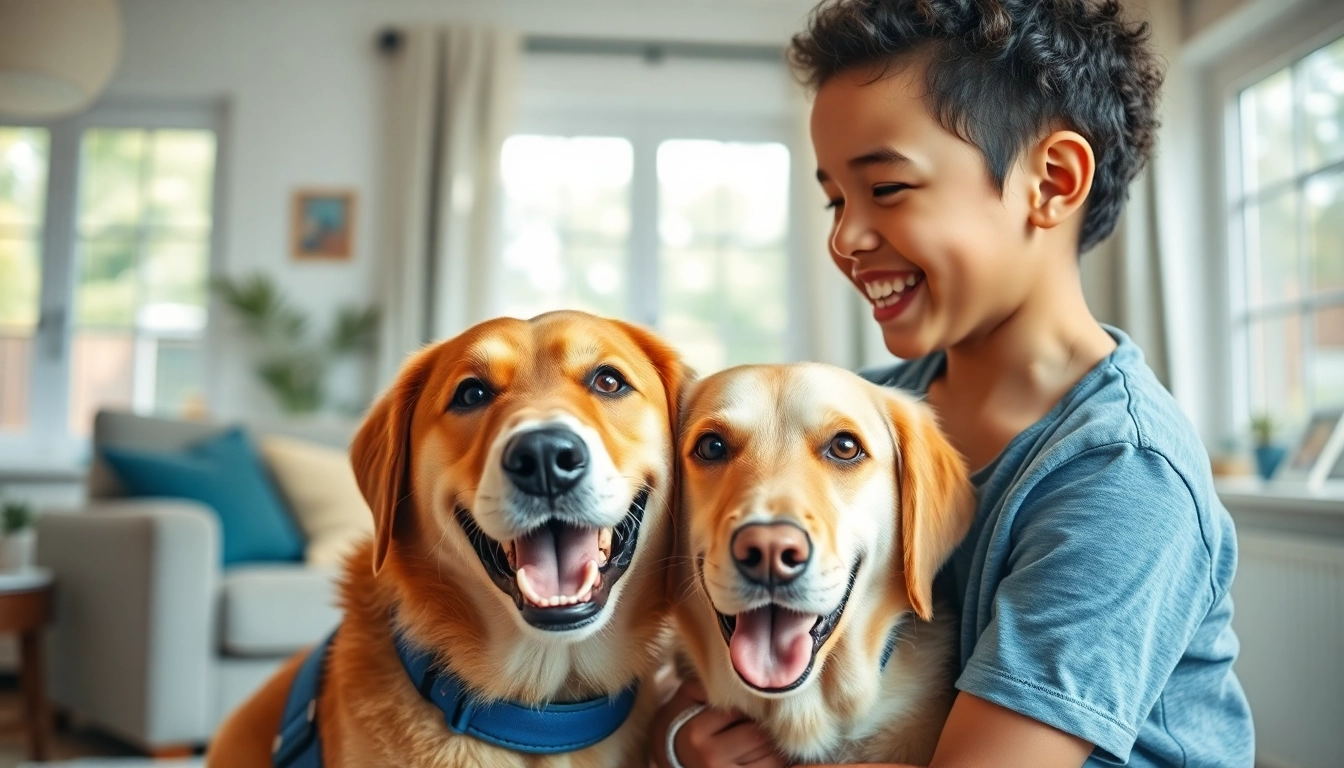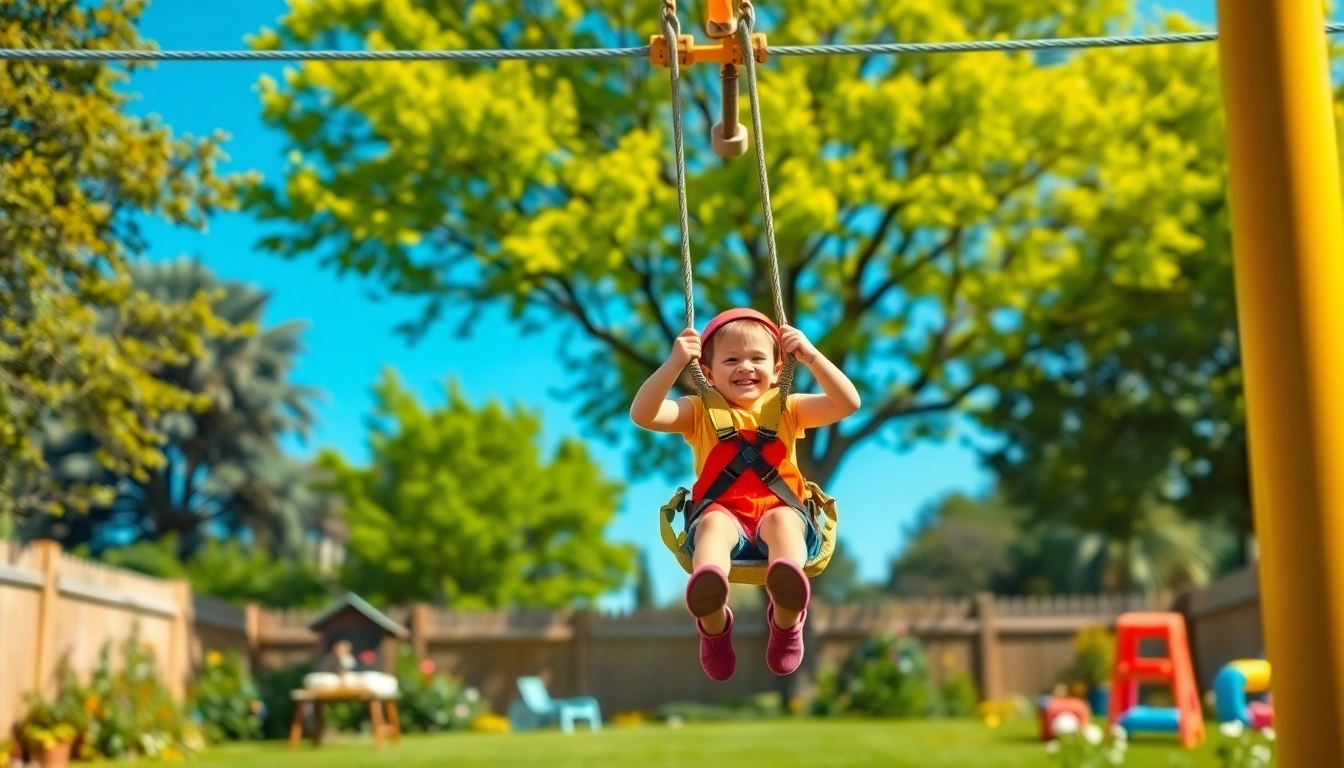
Understanding Dog Training Basics
Dog training is an essential aspect of having a pet. It not only strengthens the bond between you and your dog but also ensures that your companion behaves well in various environments. In Irvine, a city known for its vibrant community and pet-friendly policies, understanding the fundamentals of dog training can make a significant difference in your journey as a dog owner. Whether you’re looking to teach basic commands or address specific behavioral issues, grasping the basics of dog training is the first step towards success. With numerous resources available for Dog Training Irvine, finding the right approach for your furry friend is more accessible than ever.
Importance of Positive Reinforcement
Positive reinforcement is a cornerstone of modern dog training. This technique involves rewarding desirable behaviors to encourage their repetition. Rewards can take many forms, including treats, praise, or playtime. Research in animal behavior has shown that dogs learn faster and have better long-term retention of skills when they are trained using positive reinforcement rather than harsh methods.
One study conducted by the University of Pennsylvania found that dogs trained with positive reinforcement exhibited not only improved obedience but also increased enthusiasm for learning. Positive reinforcement builds trust and a solid bond between you and your dog, making training sessions enjoyable and effective. Moreover, this approach is beneficial for shaping behavior in various contexts—whether you’re teaching your dog to sit, stay, or walk politely on a leash, rewarding positive actions creates a conducive learning environment.
Common Training Techniques Explained
While positive reinforcement is incredibly effective, there are several common training techniques that pet owners can utilize. Some of the primary methods include:
- Clicker Training: This technique employs a clicker to mark a desired behavior followed by a reward. The sound acts as a signal to the dog that they have done something right.
- Leash Training: Essential for promoting good behavior on walks, leash training helps in teaching your dog to walk calmly beside you. This can be executed using treats and praise to encourage desired behavior.
- Desensitization: A method useful for dogs with specific fears or anxieties, desensitization involves gradual exposure to the feared object or situation while rewarding calm behavior.
- Socialization: Introducing your dog to various environments, people, and other animals can help reduce anxiety and promote public behavior. Proper socialization is often crucial for a well-adjusted pet.
Setting Realistic Goals for Your Dog
When embarking on the dog training journey, it is vital to set realistic and achievable goals. Understanding your dog’s age, breed, temperament, and learning style will help in crafting a training regimen that is both effective and suitable. Start with small, manageable objectives, such as teaching ‘sit’ or ‘stay,’ and gradually progress to more complex commands. Celebrating each small victory can keep both you and your dog motivated. This gradual approach is particularly effective in preventing frustration for both the trainer and the dog, creating a positive training experience overall.
Finding the Right Dog Training Classes in Irvine
With a multitude of options available in Irvine, finding the right dog training classes can feel overwhelming. However, by evaluating local providers and considering your dog’s specific needs, you can make an informed decision.
Top Local Dog Training Providers
Several well-established dog training providers have earned a reputation for excellence in Irvine. Here are some notable ones:
- Manners for Mutts: Known for their positive reinforcement approach, they offer group classes and private lessons aimed at instilling good behavior in dogs of all ages.
- Paw Sweet Paw: Offering tailored training packages, this facility focuses on building foundational obedience while considering the unique personality of each dog.
- Wags & Wiggles: This facility presents a range of training programs, including day school lessons and seminars tailored specifically for puppies and other dogs.
- OC Canine Coaching: A standout for behavioral modification, OC Canine Coaching tailors their training solutions to address specific issues like anxiety and reactivity.
What to Look for in a Training Program
When evaluating training programs, consider the following factors:
- TrainerQualifications: Look for certified trainers with a background in positive reinforcement techniques and experience with various dog breeds.
- Curriculum: Ensure the program covers all essential commands and behavioral issues you wish to address.
- Availability of Support: Assess whether the program offers ongoing support or follow-up sessions to ensure long-term success.
- Environment: A supportive and affectionate training environment is crucial for fostering learning and reducing anxiety for your dog.
Cost Considerations for Training Services
The cost of dog training classes can vary significantly. Depending on the type and duration of the program, expect to pay anywhere from $200 to over $1,000. Group classes tend to be more affordable, while private lessons offer personalized attention at a higher price. Keep an eye out for package deals or discounts, as many providers offer incentives for booking multiple sessions in advance. When assessing value, remember to consider the trainer’s experience, program quality, and potential long-term benefits, rather than simply comparing costs.
Advanced Training Techniques for Specific Needs
For dogs with specific needs, advanced training techniques can make a world of difference. Whether it’s managing aggressive behavior or preparing a service dog, specialized training approaches require a thoughtful and tailored methodology.
Addressing Behavioral Issues
Behavioral issues such as aggression, excessive barking, or separation anxiety are common challenges that many dog owners face. Addressing these problems typically requires a combination of training and behavior modification techniques. It’s advisable to consult with a certified animal behaviorist or a qualified dog trainer who can provide personalized strategies based on the specific issues your dog faces. Techniques may include:
- Controlled Exposure: Gradually exposing your dog to the stimulus that triggers their behavior while reinforcing calm behavior.
- Counter Conditioning: Teaching your dog to associate the previously feared situation with positive experiences, for example, rewarding them with treats when they encounter other dogs in a controlled setting.
- Consistent Commands: Using consistent commands and cues can help reinforce good behavior and reduce confusion for your dog.
Socializing Your Dog with Other Pets
Socialization is critical for ensuring that your dog behaves well around other animals and people. Engaging in group training classes or scheduled playdates can provide opportunities for your dog to learn appropriate social behaviors. The goal is to expose your dog to a variety of experiences in a safe and controlled environment.
Seek out training classes that incorporate socialization as part of their curriculum. These classes typically allow your dog to interact with other dogs while under supervision, helping to build their confidence and teaching them how to communicate with other animals effectively.
Training for Service and Therapy Dogs
Training a dog to be a service animal or therapy dog requires specialized knowledge and techniques. This process usually involves teaching the dog to perform specific tasks that assist their owner, such as guiding individuals with impaired vision or alerting people to medical conditions. These dogs require a high level of obedience and socialization; thus, training programs should be structured accordingly.
For service dogs, it’s crucial to work with trainers who have experience in this niche. Many accredited institutions offer programs specifically designed to prepare dogs for service work, addressing both obedience and specific tasks. In contrast, therapy dogs primarily provide emotional support, so their training will focus more on calmness and sociability in various environments.
Building a Training Schedule for Long-Term Success
A well-structured training schedule is key to cementing the skills your dog learns over time. Consistency in training sessions, combined with daily reinforcement of newly learned commands, achieves optimal behavioral outcomes.
Daily Routines and Consistency
Creating consistent training sessions within your dog’s daily routine can greatly enhance their learning experience. Aim for short, frequent training sessions—ideally between 5-15 minutes—spread throughout the day. This method can help maintain your dog’s interest and engagement while lessening the likelihood of fatigue or frustration.
Incorporate training exercises into everyday activities, such as practicing ‘sit’ during mealtimes or ‘stay’ before opening doors. This consistent pattern will help reinforce learning in real-world situations.
Tracking Progress and Adjustments
Tracking your dog’s progress allows you to assess how well they are learning and if adjustments are necessary. Keep a journal of training sessions, noting successes and areas that require improvement. Regularly revisiting your goals and celebrating advancements can boost both your and your dog’s morale.
Techniques that may not yield immediate results can also be adjusted. If your dog struggles with a particular command, consider breaking it into smaller parts, or revisiting earlier stages of training to ensure foundational skills are solid.
Incorporating Fun Activities into Training
Training should be a fun and engaging experience for both you and your dog. Introducing games like fetch or hide-and-seek can make learning enjoyable while reinforcing essential skills. Consider using agility equipment, which can combine exercise with training and significantly enhance your dog’s physical coordination and mental stimulation.
Incorporating play into your training not only keeps your dog interested but also showcases your bond, making the experience more rewarding for both of you.
Community Resources for Dog Owners in Irvine
In addition to formal training programs, Irvine offers numerous community resources that can further support your journey as a dog owner. Engaging in local resources can foster a sense of community while enhancing your dog’s social skills.
Local Dog Parks and Playgroups
Irvine is home to several dog parks and organized playgroups where your pet can socialize and play safely. Facilities like the Irvine Central Park’s Dog Park provide fenced-in areas where dogs can roam freely while their owners supervise. These parks often host community events focused on dog training and socialization, allowing for both fun and learning.
Online Forums and Support Groups
Joining online forums and local social media groups can provide valuable support and resources for dog training in Irvine. Websites like Reddit or dedicated Facebook groups allow for sharing experiences and asking for advice from fellow dog owners. Utilizing these platforms can connect you to training resources, community events, and valuable local recommendations.
Events and Workshops for Dog Owners
Keep an eye out for workshops and events specifically for dog owners in your area. These can range from training camps to breed-specific gatherings and are often hosted by local trainers or animal organizations. Participation in these events can enrich your knowledge, expose your dog to new experiences, and create lasting community connections.






